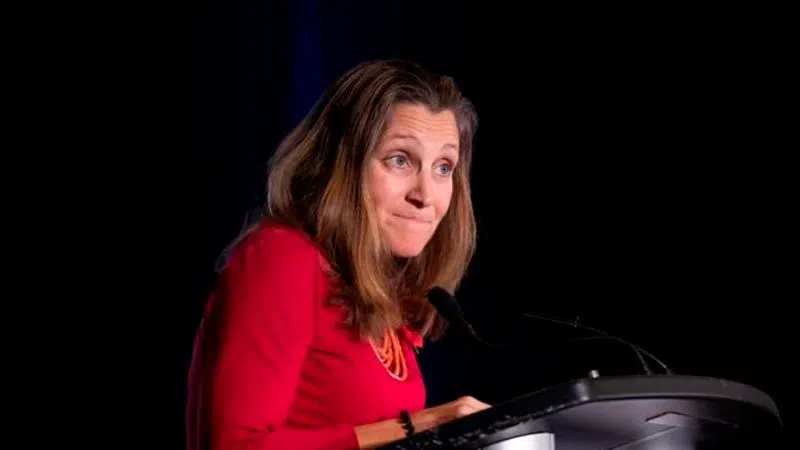
Freeland touts Alberta roots in post-election speech that calls for unity
OTTAWA — Foreign Affairs Minister Chrystia Freeland is touting the country’s Ukrainian community that spans provinces such as Alberta and Saskatchewan, as well as the rest of Canada, as a great unifier in post-election Canada.
She also pointed out Friday that she is Alberta-born, even though she now represents a downtown Toronto riding.
Freeland was addressing the opening of a three-day policy convention hosted by the Ukrainian Canadian Congress.
Freeland is one of the 1.3 million Canadians of Ukrainian descent, which represents one of the country’s most influential diaspora communities.
